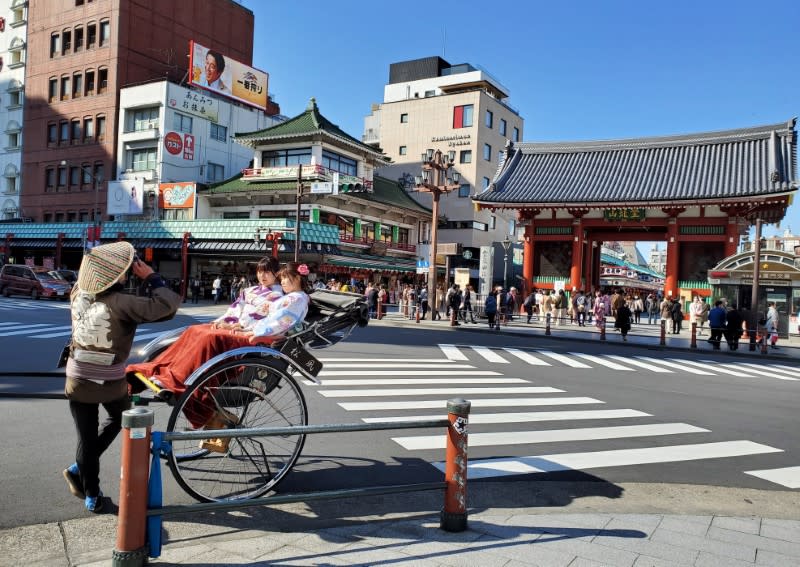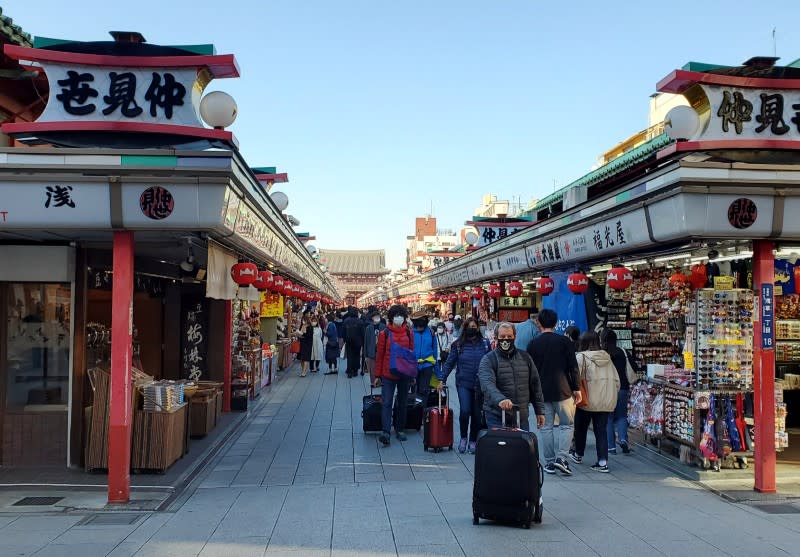Rickshaws, kimonos, but no tourists - Tokyo's Asakusa hit by coronavirus, Olympics delay
By Ju-min Park and Shiori Ozawa
TOKYO (Reuters) - Japanese and foreign tourists flock in their hundreds of thousands every spring to this old district of Tokyo to see the cherry trees in full bloom and the bright red gate to the Sensō-ji temple, and to visit its bars and shops.
But this year, as if the coronavirus pandemic were not already enough in keeping people away, Asakusa - and the rest of Japan - woke to news on Wednesday that the Tokyo Olympics has been postponed till 2021 because of the disease.
"This was supposed to be the most exciting time because of the cherry blossom and with the Olympics drawing closer," Yuki Kinoshita, working at kimono shop Suzuya, told Reuters.
"The coronavirus is a pandemic so people around the world are worried. It's a shame for our shop, " said Kinoshita.
Kinoshita said the sales at her store, which is packed with pink and purple fabrics, ninja suits and T-shirts with imprints of Japanese food, have plummeted even below levels seen after the Fukushima nuclear disaster of 2011.
Even Asakusa's famous rickshaw pullers, known for their muscular physique and witty repartee that rarely fail to attract the Thais, Chinese and South Koreans who flock to the area, are mostly standing idly by.
"Maybe not holding the Olympics this year isn't such a bad idea because our business is already going through hard times with fewer foreign tourists," said one of the pullers, clad in a scarf, tight black trousers and a type of traditional Japanese footwear called tabi.
He declined to give his name and several other rickshaw pullers said they did not want to spoil their businesses further by talking to reporters about coronavirus and the delayed Olympics.
A few rickshaws rattling through the streets carried not tourists but students celebrating their graduation with a photo shoot in traditional Japanese garb.
The coronavirus pandemic is hitting Japan's tourism industry hard, with the number of foreign visitors plunging 58% in February from a year earlier, government data showed.
"Customers, not only from Japan but also from abroad, come to Japan because it’s the Olympics, don’t they. But the number of the customers will decline because of the postponement," said Joselito Yazawa, a worker at a traditional pancake store.
(Reporting by Ju-min Park; Editing by Gareth Jones)


